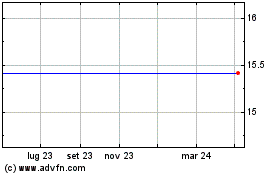Aborted bid to merge with Renault leaves auto maker facing
challenges alone
By Eric Sylvers
This article is being republished as part of our daily
reproduction of WSJ.com articles that also appeared in the U.S.
print edition of The Wall Street Journal (June 11, 2019).
Fiat Chrysler Automobiles NV Chief Executive Mike Manley spent
his first year in the job trying to motivate employees stunned by
the sudden death last summer of his charismatic predecessor, Sergio
Marchionne.
Now, the 55-year-old executive must again rally the workforce
following Fiat Chrysler's failed merger proposal and a
whistleblower lawsuit filed by one of the company's highest-ranking
American executives.
Fiat Chrysler last week withdrew a proposal to merge with
France's Renault SA that would have created the world's
third-largest car company by volume, with the Italian-American auto
maker blaming the French government for creating barriers to the
deal.
If Fiat Chrysler had been successful, Mr. Manley -- the former
head of the company's Jeep and Ram brands -- would have moved to a
new role, becoming one of two chief operating officers at the
combined entity, say people familiar with the plan. Renault's
chief, Jean-Dominique Senard, would have become CEO of the group,
they say.
The unexpected breakdown of talks leaves Mr. Manley to soldier
on at the top, amid questions about whether the company will seek
another merger partner -- or even return to talks with Renault.
On Sunday, French Finance Minister Bruno Le Maire said that
while the auto industry needs further consolidation, Renault and
Nissan Motor Co. should strengthen their two-decade partnership
before getting involved in any new merger moves. The French
government is Renault's largest shareholder.
Fiat Chrysler declined to make Mr. Manley available for an
interview. Since taking the helm last July, he has largely
concentrated on operations and stayed out of the limelight.
Fiat Chrysler Chairman John Elkann led the charge in merger
talks with Renault, meeting with both French government officials
and Renault executives, while Mr. Manley worked to flesh out the
details. Mr. Elkann, exasperated with the French government, was
also the one to pull the plug.
On Friday, Mr. Manley, in an address to some employees, said
that it can be difficult to make an about-face but sometimes it is
the right thing to do.
Moving past the failed merger proposal could be a challenge for
Mr. Manley and other company leaders, especially if it was regarded
as a solution to a problem, said Peter Cappelli, a management
professor at the University of Pennsylvania's Wharton School of
Business.
"It's probably not going to be very satisfying for people to
hear, 'Oh well, we're going back to business as usual,'" Mr.
Cappelli said. "People want to hear a story that says, 'OK, here's
where we're going. Here is why this didn't work out.'"
While Mr. Manley has repeatedly said Fiat Chrysler can thrive on
its own, the company faces numerous hurdles, the biggest of which
is generating enough cash to invest in electric cars and other new
technologies as global auto sales cool. In 2018, Fiat Chrysler
posted a 3% rise in net income to EUR3.6 billion ($4.1 billion) as
revenue advanced 4% to EUR115 billion. Profit and revenue fell in
the first quarter of this year.
Mr. Manley also must fix Fiat Chrysler's money-losing operations
in China and Europe, confront the challenge of autonomous driving,
build a stronger pipeline of new models, and improve sales for its
underperforming luxury brands, Maserati and Alfa Romeo, analysts
say. The company is struggling with rising costs related to meeting
tougher emissions standards, particularly in Europe -- a problem it
was hoping to remedy via a merger with Renault, a European leader
in electric-car technology.
Fiat Chrysler, the third-largest U.S. car maker by sales, has
sought partnerships to deal with the mounting costs. On Monday, it
said it would begin integrating the self-driving technology of
Silicon Valley startup Aurora into some commercial vehicles.
Financial terms of the agreement weren't disclosed.
Mr. Manley played a pivotal role under Mr. Marchionne, turning
Jeep from a U.S.-focused brand into a global success. Jeep sold
fewer than 300,000 vehicles in 2009, the year Fiat took a stake in
the then-bankrupt Chrysler. Last year, Fiat Chrysler sold more than
1.6 million Jeeps world-wide, according to LMC Automotive,
surpassing even the Fiat brand to become the company's top
seller.
Two months before his death last year, Mr. Marchionne had
presented an aggressive set of operational and financial targets,
including a big jump in profits and new models. Mr. Manley has
inherited the goals, which were met with skepticism when they were
laid out and have continued to draw doubts from many analysts.
"There is the big question of what Mr. Manley will do with
Europe, but there are other issues such as sorting out the premium
brands Maserati and Alfa Romeo that have underperformed the
expectations set by Marchionne," said Stephen Reitman, an analyst
at Société Générale.
Fiat Chrysler's China business, an area Mr. Manley oversaw for
years as head of Asia-Pacific, has also fallen short of
expectations and is in need of a "reboot," Mr. Reitman said.
The speed at which Mr. Manley confronts these challenges will
influence how attractive Fiat Chrysler might be to another merger
partner, say analysts.
The auto maker is also dealing with a whistleblower lawsuit
filed by Reid Bigland, its current U.S. sales chief. Mr. Bigland
accuses Fiat Chrysler of cutting his pay to punish him for
cooperating with an investigation by the Securities and Exchange
Commission into the company's sales-reporting practices.
Fiat Chrysler declined to comment on the lawsuit but said Mr.
Bigland's incentive pay, like that of other corporate officers, is
determined by the board of directors, which is still evaluating the
issues that surfaced in the federal investigation. Deborah Gordon,
Mr. Bigland's attorney, said his performance at work has never been
an issue, including in 2018.
Along with the SEC probe, the U.S. Justice Department began
investigating the company's sales-reporting practices after an
Illinois dealership group filed a lawsuit claiming Fiat Chrysler
used "strong-arm" tactics to get dealers to falsify monthly sales
reports to inflate results. Fiat Chrysler has denied the claims.
The company settled the lawsuit in April with the dealership
group.
--Ben Foldy contributed to this article.
Write to Eric Sylvers at eric.sylvers@wsj.com
(END) Dow Jones Newswires
June 11, 2019 02:47 ET (06:47 GMT)
Copyright (c) 2019 Dow Jones & Company, Inc.
Grafico Azioni Stellantis NV (BIT:STLA)
Storico
Da Mar 2024 a Apr 2024

Grafico Azioni Stellantis NV (BIT:STLA)
Storico
Da Apr 2023 a Apr 2024
